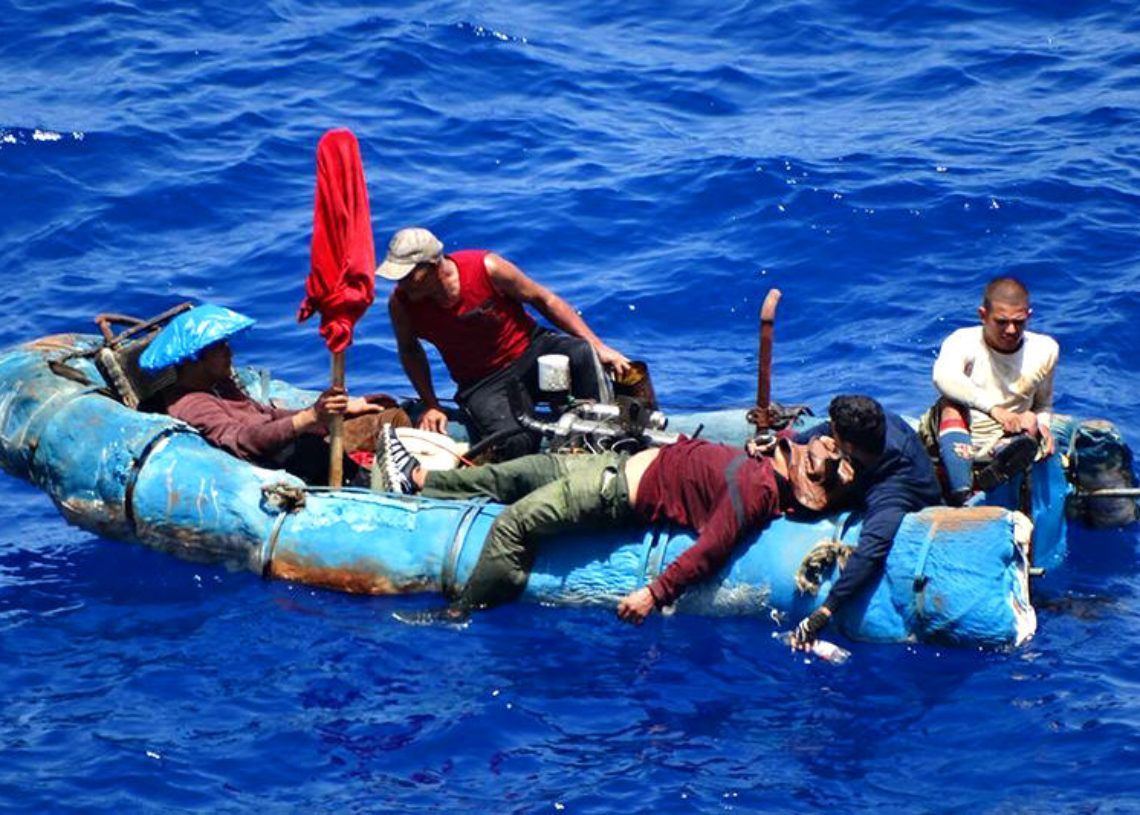At least sixty Cuban migrants were arrested by authorities in the Florida Keys off the southern tip of this southeastern U.S. state last weekend and on Monday, August 29. It underscores the growing trend of so-called “rafters” arrivals in the area.
The head of Customs and Border Protection (CBP) in Miami, Walter N. Slosar, announced Monday via “Twitter” that members of the U.S. federal authorities arrested 33 Cuban migrants on Monday, in addition to 27 others intercepted over the weekend.
The Coast Guard has detained nearly 4,500 Cubans off the coast of Florida since October 1, 2021, the start of the current fiscal year.

Cubans are leaving their country in one of the largest exoduses in four decades, risking their lives on a perilous journey to the United States by air, land, and sea to escape political and economic problems.
The vast majority fly to Nicaragua as tourists and make the long journey to the U.S. border, usually to Texas or Arizona. A minority relies on arriving by sea, and thousands pursue the same goal.
Between January and July, U.S. authorities had 155,000 encounters with Cubans entering through the Mexican border – more than six times as many as during the same period in 2021.
The vast majority are released with orders to appear in immigration court or report to immigration authorities. It is the largest exodus of Cubans since the so-called Mariel Crisis in 1980, when nearly 125,000 “rafters” arrived in the United States in six months.
The reason for the migration is Cuba’s worst economic crisis in decades due to the tightening of U.S. sanctions and the impact of COVID-19.
Mass protests in July 2021 led to nearly 1,400 arrests and fears of political repression, prompting more Cubans to flee. Another trigger came in November when Nicaragua lifted visa requirements for Cubans to boost tourism.
Increasingly frequent power outages in Cuba have led to social discontent with the regime and protests in several parts of the communist-ruled Caribbean island. President Díaz-Canel called those protesting the constant blackouts “indecent.”
With information from Latina Press

